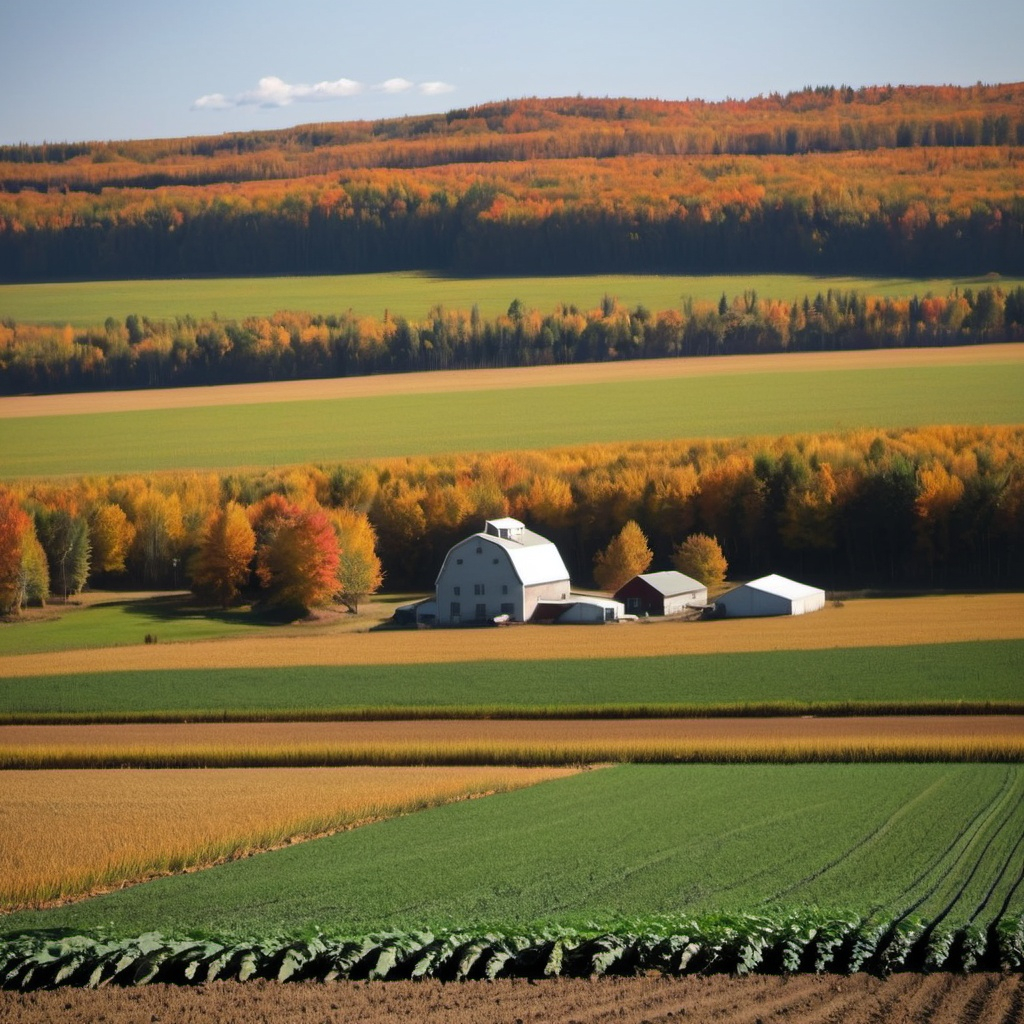
Historical Background
Agriculture has a deep-rooted history in Quebec, dating back to the early French settlers who established farming communities in the 17th century. The province’s fertile soil and favorable climate contributed to the development of diverse agricultural practices. Over the centuries, Quebec’s agriculture has evolved from subsistence farming to a modern, technologically advanced sector.
Major Crops and Livestock
Quebec’s agricultural landscape is characterized by a variety of crops and livestock. The province is a leading producer of dairy products, with a significant number of dairy farms throughout the region. Additionally, Quebec is known for its production of grains such as corn and wheat, as well as vegetables and fruits like potatoes, carrots, and apples. The province also has a strong presence in the poultry and hog sectors, contributing to its diverse agricultural output.
Agricultural Innovation and Technology
Agriculture in Quebec has embraced innovation and technology to enhance productivity and sustainability. The province is known for its advancements in precision agriculture, which utilizes technologies such as GPS and data analytics to optimize farming practices. Quebec also invests in research and development to promote sustainable farming methods, improve crop yields, and address environmental challenges.
Government Policies and Support
The Quebec government supports the agricultural sector through various policies and programs designed to promote growth and sustainability. These include financial incentives for farmers, subsidies for research and development, and initiatives aimed at supporting rural communities. Government agencies also work to ensure food safety and quality standards are met, providing a stable and reliable framework for the industry.
Challenges and Opportunities
Quebec’s agricultural sector faces several challenges, including climate change, labor shortages, and market fluctuations. However, these challenges also present opportunities for growth and innovation. The province is actively exploring solutions to mitigate the effects of climate change, such as developing drought-resistant crops and adopting sustainable farming practices. Additionally, there are opportunities for growth in niche markets and value-added products, such as organic and specialty foods.
Regional Diversity
Quebec’s agriculture is marked by regional diversity, with different areas of the province specializing in various types of farming. For example, the Montérégie region is known for its fruit and vegetable production, while the Eastern Townships focus on dairy and cheese production. Each region’s unique climate and soil conditions contribute to the province’s overall agricultural diversity.